It is our honor to announce this distinguished group of 2018 Scientific Achievement Award winners who are being recognized for their excellence in the pharmacology field.
The 2018 Scientific Achievement Award winners are listed below.
Division-Sponsored Scientific Achievement Awards are listed below:
John J. Abel Award in Pharmacology
Kirill A. Martemyanov, PhD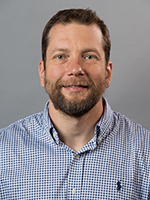
Dr. Kirill Martemyanov, full-time tenured professor at The Scripps Research Institute, is the recipient of the 2018 ASPET John J. Abel Award in Pharmacology.
The Abel Award is named after the founder of ASPET. It was established in 1946 to stimulate fundamental research in pharmacology and experimental therapeutics by young investigators.
Dr. Martemyanov is being recognized for his research on how G protein signaling pathways are organized and regulated in the retina, heart and brain. He was nominated by Dr. Richard Neubig from Michigan State University who recommended him as “an outstanding young molecular pharmacologist and neuroscientist who has done tremendous work to advance our understanding of signal transduction in the visual system and the CNS.”
Dr. Martemyanov received his PhD in molecular biology from the Russian Academy of Sciences in 2000 and did postdoctoral training at Harvard Medical School. He launched his independent career at the University of Minnesota before his appointment in 2011 at The Scripps Research Institute, where he is now a tenured full professor.
An author of over 100 publications, his lab has made key contributions in elucidation of structure/functional organization of RGS protein complexes, their role in controlling ion channels and second messenger pathways and implications for physiology of the nervous and cardiovascular systems. More recently, his lab advanced the understanding of the role of GPCR signaling components in disease, linking mutations in several components (Gbeta5, Gbeta1, Galpha-olf) to movement and neuropsychiatric disorders and deciphering mechanistic basis of signaling alterations that lead to disease.
ASPET will present Dr. Martemyanov with the Abel award at the Business Meeting and Awards Presentation during the ASPET Annual Meeting at Experimental Biology 2018 in San Diego, CA on Saturday, April 21, 2018 from 4:30 pm – 6:00 pm.
Dr. Martemyanov will deliver the John J. Abel Award in Pharmacology Lecture titled “Molecular Control of G protein Signaling” on Sunday, April 22, 2018 from 8:30 am – 9:15 am.
Julius Axelrod Award in Pharmacology
Joseph A. Beavo, Jr., PhD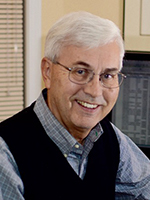
Dr. Joseph A. Beavo, professor emeritus at the University of Washington, is the recipient of the 2018 ASPET Julius Axelrod Award in Pharmacology.
The Axelrod Award was established in 1991 to honor the memory of the eminent American pharmacologist who shaped the fields of neuroscience, drug metabolism, and biochemistry and who served as a mentor for numerous eminent pharmacologists around the world.
Dr. Beavo is being recognized for his research on the identification, regulation and functions of cyclic nucleotide phosphodiesterases, work on cyclic nucleotides, and for his strong commitment to mentoring. He was nominated by Dr. William Catterall from the University of Washington.
Dr. Beavo earned his PhD in physiology from Vanderbilt University, where his major professors were Dr. Earl W. Sutherland, Jr., who became a Nobel Laureate for his discovery of cAMP, and Dr. Joel G. Hardman. At Vanderbilt, Dr. Beavo discovered that methylxanthines, like IBMX, inhibit phosphodiesterases, laying the key groundwork for this pharmacology.
In 1971, Dr. Beavo joined the laboratory of Dr. Edwin G. Krebs at the University of California, Davis. As a postdoctoral fellow and research faculty member, he made major contributions to understanding cyclic AMP-dependent protein kinases and contributed significantly to work that later led to the Nobel Prize for Dr. Krebs.
In 1977, Dr. Beavo joined the department of pharmacology at the University of Washington, where his research revealed 11 diverse families of cyclic-nucleotide phosphodiesterases with different substrate specificity and regulation. This laid the foundation for the development of important pharmacological agents, including Viagra and Cialis.
Dr. Beavo has been an exceptional mentor of junior colleagues both in his own laboratory and as vice-chair of the department of pharmacology at the University of Washington. He has trained 23 graduate students and more than 32 postdoctoral research fellows. His former student, Dr. Scott Soderling, described being “impressed with Joe’s deep enthusiasm for science and his easy approachability. He truly loved to spend time discussing details of my research and was very encouraging, but also probing in his questions in a way that forced me to think critically and deeply.”
An invaluable member of ASPET for over 35 years, Dr. Beavo served as president of ASPET from 2008-2009, councilor of ASPET from 2000-2009 and was on the program committee of ASPET from 1993-1999. He was also an associate editor of Molecular Pharmacology from 1986-1990 and served on the editorial board of Pharmacological Reviews from 1995-2000. Dr. Beavo was elected to the National Academy of Sciences in 1996.
ASPET will present Dr. Beavo with the Axelrod award at the Business Meeting and Awards Presentation during the ASPET Annual Meeting at Experimental Biology 2018 in San Diego, CA on Saturday, April 21, 2018 from 4:30 pm – 6:00 pm.
Otto Krayer Award in Pharmacology
Paul F. Hollenberg, PhD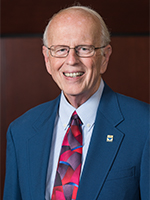
Dr. Paul F. Hollenberg, professor emeritus of pharmacology at the University of Michigan, is the recipient of the 2018 ASPET Otto Krayer Award in Pharmacology.
The Krayer Award commemorates the enduring legacy of Dr. Otto Krayer's ethical behavior, commitment to teaching, high standards of scientific scholarship, publication and editorship, promotion of interdisciplinary research to reveal the actions of drugs or other chemicals, and his guidance and support of younger scientists.
Dr. Hollenberg is being recognized for his research accomplishments on the role of mechanism-based inactivation of cytochrome P450 function, editorships, including the co-founding of Chemical Research in Toxicology, commitment to teaching and editorial service for ASPET, and for his guidance of younger scientists.
He was nominated by Dr. Yoichi Osawa from the University of Michigan Medical School who called him “the quintessential mentor” and said “his career of leadership and service to ASPET and to the drug metabolism community is particularly exemplary. Most of all, if you ask anyone who knows Paul, they would all agree that he is a gentleman and a man of his word.”
Since 2016, Dr. Hollenberg has been a professor emeritus of pharmacology at the University of Michigan Medical School. He was on the faculty at Northwestern University Medical School, chair at Wayne State University School of Medicine, and chair at the University of Michigan Medical School for more than 20 years. He is also an alumnus of the University of Michigan, having received his PhD in biological chemistry from Michigan.
Dr. Hollenberg’s groundbreaking studies led to the identification CYP450 substrate binding sites and enabled mapping of the active sites of the mammalian P450s. Over the years, his laboratory has played one of the leading roles in the use of mechanism-based inactivators to investigate the substrate binding sites, mechanisms of oxygen activation, formation of reactive intermediates and role of various amino acid residues in the active site in the catalytic mechanism.
Dr. Hollenberg has mentored over 50 graduate students, postdocs, and visiting scientists. He has published more than 200 peer-reviewed papers and co-founded Chemical Research in Toxicology in 1988, where he served as an associate editor and review editor until his recent retirement.
An invaluable member of ASPET for 35 years, Dr. Hollenberg served as president of ASPET from 2002-2003, as secretary/treasurer from 1997-1998, and on the finance committee from 1996-1999. He has dedicated decades to serving on the editorial boards of both Drug Metabolism and Disposition and The Journal of Pharmacology and Experimental Therapeutics and currently represents ASPET on the board of the Experimental Biology conference.
ASPET will present Dr. Hollenberg with the Otto Krayer award during the ASPET Annual Meeting at Experimental Biology 2018 in San Diego, CA on Saturday, April 21, 2018 from 4:30 pm – 6:00 pm.
Dr. Hollenberg will deliver the Otto Krayer Award in Pharmacology Lecture titled “Active Site Structures and Catalytic Mechanisms of Drug Metabolizing Cytochrome P450s” on Monday, April 23, 2018 from 8:30 am – 9:15 am.
Louis S. Goodman and Alfred Gilman Award in Receptor Pharmacology
Marc G. Caron, PhD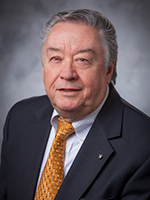
Dr. Marc G. Caron, James B. Duke professor and vice chair for research in the department of cell biology at Duke University Medical Center, is the recipient of the 2018 ASPET Goodman and Gilman Award in Receptor Pharmacology.
The Goodman and Gilman Award was established in 1980 to recognize and stimulate outstanding research in pharmacology of biological receptors. Such research is the foundation for a better understanding of the mechanisms of biological processes and potentially provides the basis for the discovery of drugs useful in the treatment of diseases.
Dr. Caron is being recognized for his studies on how the dopamine and serotonin receptor systems control behavior, and how deficits in these pathways mediate disease.
He was nominated by Drs. Jeffrey Benovic, Robert Lefkowitz, Brian Kobilka, Henrik Dohlman, and Bryan Roth, who noted that “Dr. Caron has a long history of outstanding discovery in the G protein-coupled receptor (GPCR) field and his work has tremendous promise for the treatment of a number of debilitating disorders.”
Key discoveries of his laboratory include the cloning and knock-out of various monoamine transporters, identification of novel signaling complexes for the D2 dopamine receptor, development of biased agonists that might be useful in the treatment of schizophrenia and Parkinson’s disease, and identification of strategies to manage treatment resistant depression.
Dr. Caron received his PhD in biochemistry from the University of Miami in 1973. In 1975, following a postdoctoral fellowship at Duke, he became an assistant professor at Laval University in Quebec City and in 1977 return to Duke University where he has since held numerous professorships at Duke for the past 40 years.
An ASPET member for more than 35 years, Dr. Caron has served on many editorial boards, including ASPET’s Molecular Pharmacology from 1983-1991.
ASPET will present Dr. Caron with the Goodman and Gilman award during the ASPET Annual Meeting at Experimental Biology 2018 in San Diego, CA on Saturday, April 21, 2018 from 4:30 pm – 6:00 pm.
Dr. Caron will deliver the Goodman and Gilman Award in Receptor Pharmacology Lecture titled “Physiological and Therapeutic Implications of GPCR Functional Selectivity/Biased Signaling” on Sunday, April 22, 2018 from 2:30 – 3:15 pm.
Pharmacia-ASPET Award in Experimental Therapeutics
Mark Currie, PhD
Dr. Mark Currie, president of R&D and chief scientific officer at Ironwood Pharmaceuticals, is the recipient of the 2018 Pharmacia-ASPET Award in Experimental Therapeutics.
This award was established in 1969 to recognize and stimulate outstanding research in pharmacology and experimental therapeutics, basic laboratory or clinical research that has had, or potentially will have, a major impact on the pharmacological treatment of disease.
Dr. Currie is being recognized for his discovery of the peptide hormones guanylin and uroguanylin that stimulate guanylate cyclase-C (GC-C) and for utilizing the structures of these molecules as the starting point for the invention of a novel more stable peptide, linaclotide,that would prove useful for the oral treatment of gastrointestinal diseases.
He was nominated by Dr. Perry Halushka from the Medical University of South Carolina, who described Dr. Currie’s “contagious passion for pharmacology” and noted that his “accomplishments represent a true journey of scientific innovation, from bench to bedside, led by a single investigator, which is a rare and remarkable accomplishment. His accomplishments have also driven a viable pipeline of innovative medicines that have the potential to treat many tens of millions of patients worldwide in desperate need of new treatments.”
Dr. Currie received his PhD in cell biology/anatomy from the Bowman-Gray School of Medicine of Wake Forest University in 1980. He spent 10 years in academia at Washington University Medical School and the Medical University of South Carolina before joining the Monsanto Company. At Monsanto, he initiated, built and led discovery pharmacology, and served as director of arthritis and inflammation, leading an effort that resulted in marketed Cox 2 inhibitors for the treatment of pain in humans and animals.
In 2002, Dr. Currie joined Ironwood Pharmaceuticals, where he has been responsible for R&D efforts. He brought a unique understanding of GC-C pharmacology to Ironwood and coupled these insights with the expertise of his team to discover, develop, and ultimately bring to market linaclotide for the treatment of adults with irritable bowel syndrome with constipation (IBS-C) and chronic idiopathic constipation (CIC). During this journey of advancing linaclotide to patients, he and his team have defined a novel intestinal analgesic pathway through the GC-C/cyclic GMP pathway that has potential implications for treating not only abdominal pain, but also more broadly other forms of visceral pain.
An ASPET member for 10 years, Dr. Currie has had many papers published in scientific publications, including The Journal of Pharmacology and Experimental Therapeutics.
ASPET will present Dr. Currie with the Pharmacia-ASPET Award in Experimental Therapeutics during the ASPET Annual Meeting at Experimental Biology 2018 in San Diego, CA on Saturday, April 21, 2018 from 4:30 pm – 6:00 pm.
Robert R. Ruffolo Career Achievement Award in Pharmacology
Raymond J. Dingledine, PhD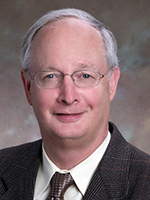
Dr. Raymond J. Dingledine, professor and chair of the department of pharmacology at Emory University School of Medicine, is the recipient of the 2018 ASPET Robert R. Ruffolo Career Achievement Award in Pharmacology.
The Ruffolo Award was established in 2011 in recognition of the contributions made to drug discovery and development by Dr. Ruffolo. The award recognizes the scientific achievements of scientists who are at the height of their careers and who have made significant contributions to pharmacology.
Dr. Dingledine is being recognized for his research achievements on the pharmacology of the glutamate receptors and the causes of epilepsy, including his earlier work that provided insight into the regulation of postsynaptic glutamate receptors, and his more recent studies that led to the identification of novel EP2 prostaglandin receptor antagonists. He was nominated by Dr. John S. Lazo from University of Virginia School of Medicine, who noted that Dr. Dingledine “shares with Dr. Ruffolo an appreciation of high throughput methods, a deep respect for the power of quantitative pharmacologic methods, and a bent towards drug discovery.”
Dr. Dingledine received his PhD in pharmacology from Stanford University in 1975. He spent time at the University of Cambridge, the University of Oslo, The Salk Institute, and the University of North Carolina at Chapel Hill before joining Emory University School of Medicine in 1992, where he currently chairs the pharmacology department.
Dr. Dingledine’s research focuses on the pharmacology of glutamate receptors and the causes of epilepsy. His early work provided numerous seminal insights into the regulation of postsynaptic glutamate receptors. Some of these findings led him to co-found NeurOp, Inc., a company focused on novel therapeutics for neurological disorders. His recent work has led to the identification of novel EP2 prostaglandin receptor antagonists capable of reducing neuroinflammation, with these studies revealing diverse immunomodulation pathways in epilepsy.
Dr. Dingledine has published over 200 research papers during his career. An ASPET member for 35 years, he has served as editor of Molecular Pharmacology and on the editorial board of Molecular Interventions and currently serves on the ASPET Investment Subcommittee.
Over the years, Dr. Dingledine has been recognized for numerous awards, including the ASPET Epilepsy Research Award in 1991 and election to the National Academy of Medicine in 2010.
ASPET will present Dr. Dingledine with the Ruffolo award during the ASPET Annual Meeting at Experimental Biology 2018 in San Diego, CA on Saturday, April 21, 2018 from 4:30 pm – 6:00 pm.
P.B. Dews Lifetime Achievement Award for Research in Behavioral Pharmacology
Robert L. Balster, PhD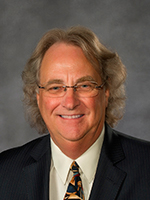
Dr. Robert L. Balster, from Virginia Commonwealth University (VCU), is the recipient of the 2018 P.B. Dews Lifetime Achievement Award for Research in Behavioral Pharmacology.
The ASPET Division for Behavioral Pharmacology sponsors the Dews Award to recognize outstanding lifetime achievements in research, teaching, and professional service in the field of behavioral pharmacology and to honor Dr. Peter Dews for his seminal contributions to the development of behavioral pharmacology as a discipline.
Dr. Balster is being recognized for his outstanding lifetime achievements in research, teaching, and professional service in the field of behavioral pharmacology.
He was nominated by Dr. Katherine Nicholson from VCU. In addition to his scientific achievements, she noted that “Bob is known for his ability to form teams, to inspire others to work together and to develop new programs while being an accessible and amiable colleague. He is one of the most collegial and positive individuals I have known.” She described that his accomplishments “span the gamut from basic research to serving as a Scientific Advisor for the [USAID’s] Global Health Bureau reflecting his breadth of knowledge and scientific versatility. His list of trainees does not completely reflect his mentoring impact as I have seen him provide expert council to established scientists.” Agencies such as the Food and Drug Administration and World Health Organization seek his scientific input.
Dr. Balster received his PhD in psychology from the University of Houston in 1970. In 1973, he joined the faculty of VCU. Dr. Balster is the co-founder and co-director of the International Programme in Addiction Studies and associate coordinator of the Hubert H. Humphrey Fellowship Program in Substance Abuse Prevention, Treatment and Policy. He also co-founded the Center for the Study of Tobacco Products at VCU.
Dr. Balster has greatly advanced the field of substance abuse research. His seminal work with the self-administration model examined the impact of procedural variables on the ability of drugs to function as reinforcers. Dr. Balster was also the first to utilize operant behavior to study the ability of animals to detect the interoceptive effects of psychoactive drugs establishing the drug discrimination paradigm. He is widely known for his pioneering work with phencyclidine, as well as being one of the first scientists to study the behavioral toxicity and abuse of inhalants using animal models.
A member of ASPET for more than 35 years, Dr. Balster served on the editorial board of The Journal of Pharmacology and Experimental Therapeutics, the Public Affairs Committee, and the Dews Award Committee. He also served as the editor of Drug and Alcohol Dependence for 12 years.
ASPET will present Dr. Balster with the P.B. Dews award during the ASPET Annual Meeting at Experimental Biology 2018 in San Diego, CA on Saturday, April 21, 2018 from 4:30 pm – 6:00 pm.
Dr. Balster will deliver the P.B. Dews Lifetime Achievement Award for Research in Behavioral Pharmacology Lecture titled “Drug-behavior Interactions and Drug Discrimination Learning” on Monday, April 23, 2018 from 2:30 pm – 3:15 pm.
Paul M. Vanhoutte Distinguished Lectureship in Vascular Pharmacology
Virginia M. Miller, PhD and Thomas Michel, MD, PhD
Drs. Virginia Miller from the Mayo Graduate School of Medicine, and Thomas Michel from Harvard Medical School (HMS) and Brigham and Women’s Hospital (BWH), are the co-recipients of the 2018 Paul M. Vanhoutte Distinguished Lectureship in Vascular Pharmacology.
The ASPET Division for Cardiovascular Pharmacology awards the Vanhoutte Lectureship to honor Dr. Vanhoutte’s lifelong scientific contributions to our better understanding and appreciation of the importance of endothelial cells and vascular smooth muscle function in health and disease and for his mentoring of countless prominent endothelial and vascular biologists and pharmacologists. Drs. Miller and Michel are being recognized for their achievements in this area.
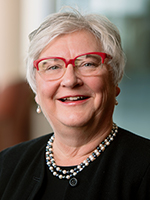 Dr. Virginia Miller was nominated by Dr. Richard Cohen of Boston University School of Medicine, who noted that “Over the last 30 years Dr. Miller has embodied the spirit of Paul’s mentorship through her excellence in science, innovation, and diversity in both application and translation of her work.”
Dr. Virginia Miller was nominated by Dr. Richard Cohen of Boston University School of Medicine, who noted that “Over the last 30 years Dr. Miller has embodied the spirit of Paul’s mentorship through her excellence in science, innovation, and diversity in both application and translation of her work.”
Dr. Miller received her PhD in physiology from the University of Missouri in 1976, and began her career in cardiovascular pharmacology under the mentorship of Paul Vanhoutte in 1983 at the Mayo Clinic. Since then, she has become an internationally recognized expert in the physiology of the cardiovascular system, most notably in the area of hormonal modulation of vascular function and sex-differences in the etiology of cardiovascular disease. She is currently professor of surgery and physiology at the Mayo Clinic Graduate School of Medicine, consultant in the Department of Surgery, and director of the Women’s Health Research Center at Mayo Clinic.
An ASPET member for 12 years, Dr. Miller served on the editorial board of The Journal of Pharmacology and Experimental Therapeutics. She has been recognized with many awards, including the Women’s Day magazine Red Dress Award in 2015 for improving women’s heart health and the Bernadine Healy Award for Visionary Leadership in Women’s Health in 2014.
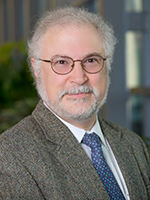 Dr. Thomas Michel was nominated by Nobel Laureate Dr. Louis Ignarro from the University of California -Los Angeles, who noted that Dr Michel’s ”scholarly achievements and inspired mentorship reveal him as an exemplar of the academic pharmacologist, very much in the mold of Paul Vanhoutte himself.”
Dr. Thomas Michel was nominated by Nobel Laureate Dr. Louis Ignarro from the University of California -Los Angeles, who noted that Dr Michel’s ”scholarly achievements and inspired mentorship reveal him as an exemplar of the academic pharmacologist, very much in the mold of Paul Vanhoutte himself.”
Dr. Michel received his PhD in biochemistry from Duke University in 1983. After completing his postdoctoral training in medicine at HMS and BWH, he was appointed to the faculty, where he has worked as a scientist, teacher, and clinician for many years. Dr. Michel has led studies on the molecular mechanisms controlling the endothelial nitric oxide synthase (eNOS), a key enzyme in cardiovascular homeostasis. His laboratory was the first to clone and characterize eNOS. Dr. Michel’s research studies have had a broad impact in vascular pharmacology, and span from cellular imaging approaches to the creation and analysis of informative mouse models.
As a young scientist, Dr. Michel was the recipient of the 1995 ASPET John J. Abel Award in Pharmacology and went on to serve the Society in division leadership positions. He has been an ASPET member for more than 20 years.
The Paul M. Vanhoutte Distinguished Lectureship in Vascular Pharmacology and award presentation will be held on Tuesday afternoon, April 24, 2018 during the ASPET Annual Meeting at Experimental Biology 2018 in San Diego, CA. Dr. Miller will give a titled “Estrogen and Vascular Function: The Clash between Basic Pharmacology and Clinical Practice.” Dr. Michel will give a talk titled “Life History of eNOS.”
Bernard B. Brodie Award in Drug Metabolism
David J. Waxman, PhD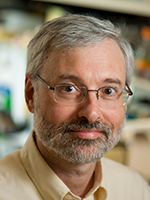
Dr. David J. Waxman, professor of cell and molecular biology in the department of biology at Boston University (BU) and professor of medicine, BU School of Medicine, is the recipient of the 2018 Bernard B. Brodie Award in Drug Metabolism.
The ASPET Division for Drug Metabolism and Disposition established the Brodie Award to honor the fundamental contributions of Bernard B. Brodie to the field. The award recognizes outstanding original research contributions in drug metabolism and disposition, particularly those having a major impact on future research in the field.
With this award, Dr. Waxman is being recognized for his achievements in this area. He was nominated by Dr. Paul Ortiz de Montellano from the University of California, San Francisco, who called his contributions “impressive” specifically noting “the creativity and solidity of his research, and his broad impact on the field of drug metabolism.” As Dr. Frank Gonzalez states in his supporting letter of nomination, “David has virtually owned this field of investigation over the past 25 years”.
Dr. Waxman received his PhD in biochemistry and molecular biology from Harvard University in 1980. After postdoctoral training at MIT and faculty appointments at Harvard Medical School and Dana Farber Cancer Institute, he joined the faculty at BU as professor in 1994. He currently serves as professor of cell and molecular biology in the department of biology and bioinformatics program, professor of medicine at BU School of Medicine, and professor of biomedical engineering in the College of Engineering at BU.
Dr. Waxman’s research has led to many important discoveries on the endocrine control and epigenetic regulation of cytochrome P450 and other enzymes of drug metabolism. His laboratory has also pioneered research in the field of cancer gene therapy using prodrug-activating P450 genes. Dr. Waxman’s most recent work has led to important translational advances on the interactions of P450-activated cancer chemotherapeutic drugs with anti-angiogenic agents and on the impact of drug scheduling on the immune system.
An ASPET member for almost 20 years, Dr. Waxman has a long record of service on the editorials boards of both Drug Metabolism and Disposition and Molecular Pharmacology.
ASPET will present Dr. Waxman with the Brodie award during the ASPET Annual Meeting at Experimental Biology 2018 in San Diego, CA on April 21, 2018 from 4:30 pm – 6:00 pm.
Dr. Waxman will deliver the Brodie Award Lecture titled “Sex Differences in Drug Metabolism: From Steroids and P450s to Transcription Factors and Chromatin States” on Tuesday, April 24, 2018 from 2:30 pm – 3:15 pm.
Division for Drug Metabolism and Disposition – James R. Gillette Award
The James R. Gillette Award is presented each year by the ASPET Division for Drug Metabolism and Disposition for two outstanding papers published in the previous year’s Drug Metabolism and Disposition.
The award recipient in the Drug Metabolism category for 2017 is Casey R Dorr for the paper titled “CRISPR/Cas9 Genetic Modification of CYP3A5 *3 in HuH-7 Human Hepatocyte Cell Line Leads to Cell Lines with Increased Midazolam and Tacrolimus Metabolism.”
The award recipient in the Pharmacokinetics/Drug Transporters category for 2017 is Marilyn Giacomini for the paper titled “Interaction of 2,4-Diaminopyrimidine Containing Drugs Including Fedratinib and Trimethoprim with Thiamine Transporters.”
The Gillette awards and short talks based on the papers will be presented during the ASPET Annual Meeting at Experimental Biology 2018 in San Diego, CA on Tuesday, April 24, 2018 from 3:30 pm – 6:00 pm.
Division for Neuropharmacology – Early Career Independent Investigator Award
Richard Daneman, PhD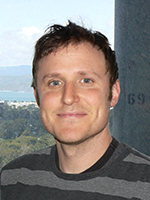
Dr. Richard Daneman, assistant professor in the departments of neuroscience and pharmacology at the University of California, San Diego (UCSD), is the recipient of the 2018 ASPET Division for Neuropharmacology Early Career Independent Investigator Award.
Dr. Daneman was nominated by Dr. Joan Heller Brown from UCSD with the support of Drs. Roland Bainton and Ben Barres, who describe him as “an amazingly insightful scientist” who is a “leader in his field and highly sought after by industry and academic collaborations.”
Per Dr. Bainton, he “single handedly brought the field of vertebrate CNS barrier studies from a descriptive science with vaguely defined clinical relevance to an interrogatable system that allows regulatory models to be tested and for new therapeutic approaches to be conceived.”
Dr. Daneman received his PhD in developmental biology from Stanford University in 2008. He has made important discoveries that have changed our understanding of how the blood-brain barrier (BBB), which is crucial to protect the brain from disease, but also greatly impedes drug delivery to the central nervous system (CNS), is regulated to treat neurological disease. Dr. Daneman’s studies have shown that BBB-specific gene expression is induced during angiogenesis, and vascular leakiness is further limited by pericytes. He has further identified mechanisms by which BBB dysfunction regulates disease, identifying a molecular signatures of of the CNS vasculature during BBB leakage and neuroinflammation. Dr. Daneman is currently investigating novel behavioral regulation by the BBB, and its adaptation and response in disease including Multiple Sclerosis, stroke and other neurological disorders.
The Early Career Independent Investigator award will be presented during the ASPET Annual Meeting at Experimental Biology 2018 at the Division for Neuropharmacology’s Annual Meeting in San Diego on Monday, April 23, 2018 from 6:00 pm – 6:30 pm.
Division for Pharmacology Education – Pharmacology Educators Travel Award
Willmann Liang, BSc (Hon), PhD, PDip, CBiol
Diptiman D. Bose, BPharm, MS, PhD
James J. O’Donnell, MS, PhD
Drs. Willmann Liang from The Chinese University of Hong Kong, Diptiman Bose from Western New England University, and James O'Donnell from Rosalind Franklin University of Medicine and Science are the recipients of 2018 ASPET Division for Pharmacology Education travel awards for pharmacology educators.
The primary goal of these travel awards is to promote participation in the ASPET Annual Meeting by pharmacology educators and to foster career development in pharmacology education. Both recipients will attend the ASPET Annual Meeting at Experimental Biology, April 21-25, 2018 in San Diego.
Dr Liang received his PhD in cardiovascular pharmacology in 2004 from the University of British Columbia in Canada. He received a postgraduate diploma in higher education in 2007 from the National Institute of Education at Nanyang Technological University in Singapore. He currently is an adjunct assistant professor in the department of life science at Tunghai University in Taiwan as well as a lecturer in the school of biomedical sciences at The Chinese University of Hong Kong.
Dr. Bose received his PhD in pharmacology in 2006 from the Thomas J. Long School of Pharmacy at the University of the Pacific in California. He spent 5 years as a postdoctoral scholar at the University of California, Davis. Currently he holds the position of assistant professor for pharmacology in the department of pharmaceutical and administrative sciences in the college of pharmacy at Western New England University in Massachusetts. For the 2014-2015 academic year, he was awarded Professor of the Year by the university.
Dr. O’Donnell received his PhD in pharmacology in 2011 from Rush University Medical Center. He was a postdoctoral fellow at the University of Chicago Department of Medicine and Indiana University School of Medicine, South Bend. Currently he is an assistant professor at Rosalind Franklin University of Medicine and Science.
The awards will be presented during the ASPET Annual Meeting at Experimental Biology 2018 at the Division for Pharmacology Education’s annual meeting on Monday, April 23, 2018 from 5:30 pm – 6:30 pm.
Division for Toxicology – Career Award
Paul B. Watkins, MD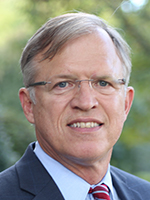
Dr. Paul B. Watkins, director of the Institute for Drug Safety Sciences at the University of North Carolina-Chapel Hill Eshelman School of Pharmacy and the Howard Q. Ferguson Distinguished Professor in the Division of Pharmacotherapy and Experimental Therapeutics, is the recipient of the 2018 ASPET Division for Toxicology Career Award.
This award recognizes outstanding original research contributions to toxicology by an established investigator. Dr. Watkins was nominated by Dr. Alison Harrill from the National Institute for Environmental Health Sciences, who cited that his “ability to see value in developing a variety of experimental models is truly visionary and is reflective of Toxicity Testing in the 21st Century approaches.”
Dr. Watkins received his MD at Cornell Medical College in 1979. After academic appointments at the Medical College of Virginia and the University of Michigan, he joined the faculty at the UNC-Chapel Hill in 1999, where he has held many professorships and leadership positions.
Dr. Watkins has been a leading researcher in understanding mechanisms underlying interactions between drugs and the liver and intestine. He is one of the most highly cited researchers in the field, due to his discovery of mechanisms underlying many drug interactions and toxicities including inhibition of metabolism and transport and the effects associated with consumption of furanocoumarins within grapefruit juice. More recently, Dr. Watkins has continued to move the field of hepatotoxicity forward via deployment of translational technologies that span preclinical models, quantitative systems toxicology, and patients in clinical trials. His work has continued to provide important information regarding detection and mechanistic understanding of drug-induced liver injury of a variety of etiologies.
An ASPET member for 12 years, he has served as on the editorial board of Drug Metabolism and Disposition.
The Division for Toxicology Career award will be presented during the ASPET Annual Meeting at Experimental Biology 2018 in San Diego, CA at the Division for Toxicology annual meeting on Tuesday, April 24, 2018 at 6:00 pm.
Division for Toxicology – Junior Investigator Award
Xiaochao Ma, PhD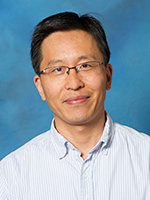
Dr. Xiaochao Ma, associate professor in the department of pharmaceutical sciences at the University of Pittsburgh School of Pharmacy, is the recipient of the 2018 ASPET Division for Toxicology Junior Investigator Award.
This award recognizes excellent original research by an early career investigator in the area of toxicology. Dr. Ma was nominated by Dr. John Chiang from Northeast Ohio Medical University with support from Drs. Frank Gonzalez and Wen Xie. In describing Dr. Ma, Dr. Gonzalez said “He is an expert in clinical pharmacology, drug metabolism, mouse models, metabolomics, and is well versed in molecular biology. Most importantly, he is bursting with ideas and picks areas of study that are of great clinical importance."
Dr. Ma received his PhD in pharmacology and toxicology from Shanghai Institute of Materia Medica, Chinese Academy of Sciences in 2003 and did his postdoctoral training at the National Institutes of Health (NIH). Afterward, he worked as an assistant professor at the University of Kansas Medical Center before joining the faculty of the University of Pittsburgh in 2013.
Dr. Ma’s research focuses on drug metabolism and drug-induced liver injury. He developed and used genetically engineered mouse models to investigate the mechanisms of side effects of clinically used drugs. Dr. Ma also used metabolomics to identify endobiotic metabolites that are involved in drug-drug interactions and toxicity. His project studying toxicity of rifampicin and isoniazid using PXR-humanized mice and metabolomics was published in Nature Medicine. His future work will continue elucidating the role of drug-endobiotic interactions in drug toxicity.
An ASPET member for 8 years, Dr. Ma was featured in the March 2016 issue of The Pharmacologist where he credits ASPET for helping his career. “By coming to the ASPET-sponsored meetings, I learned a lot from other members. I have also found good friends and collaborators in the ASPET family.”
The Division for Toxicology Junior Investigator award will be presented during the ASPET Annual Meeting at Experimental Biology 2018 in San Diego, CA at the Division for Toxicology annual meeting on Tuesday, April 24, 2018 at 6:00 pm.
Division for Translational and Clinical Pharmacology – Ray Fuller Lecture
George J. Christ, PhD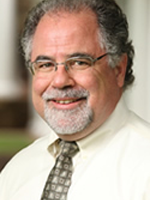
Dr. George Christ, of the University of Virginia (UVA), is the recipient of the 2018 Ray Fuller Lecture and award sponsored by the ASPET Division for Translational and Clinical Pharmacology.
Created in 1999, the Ray Fuller lecture and symposium honors the achievements of Ray W. Fuller, PhD in applying an improved understanding of the central nervous system to discover better treatments for the mentally ill. Dr. Fuller was one of the triad that discovered fluoxetine (Prozac), leading to an entire new approach to the therapy of depression.
Dr. Christ was selected for this honor by the Division for Translational and Clinical Pharmacology, who took on sponsorship of the lecture in 2017.
Dr. Christ earned a PhD in pharmacology from Wake Forest University in 1987. He currently holds many positions at UVA, including professor of biomedical engineering and orthopaedic surgery, director of basic and translational research in the department of orthopaedic surgery and head of the laboratory of regenerative therapeutics, and is the Mary Muilenburg Stamp Professor of Orthopaedic Research.
The mission of Dr. Christ’s lab at UVA is to leverage Cross Grounds collaborations to develop novel and more efficacious regenerative medicine/tissue engineering technologies for unmet medical needs. Their major current focus is on musculoskeletal tissue engineering and regeneration. In particular, they are developing a technology platform for the treatment of volumetric muscle loss (VML) injuries.
The Fuller award will be presented during the ASPET Annual Meeting at Experimental Biology 2018 in San Diego on Sunday, April 22, 2018 at 9:30 am and will be immediately followed by the award lecture by Dr. Christ titled “Regenerative Pharmacology for Muscle Repair” and a symposium chaired by Dr. Christ titled “State-of-the-Art on Regenerative Pharmacology: The Future is Now”